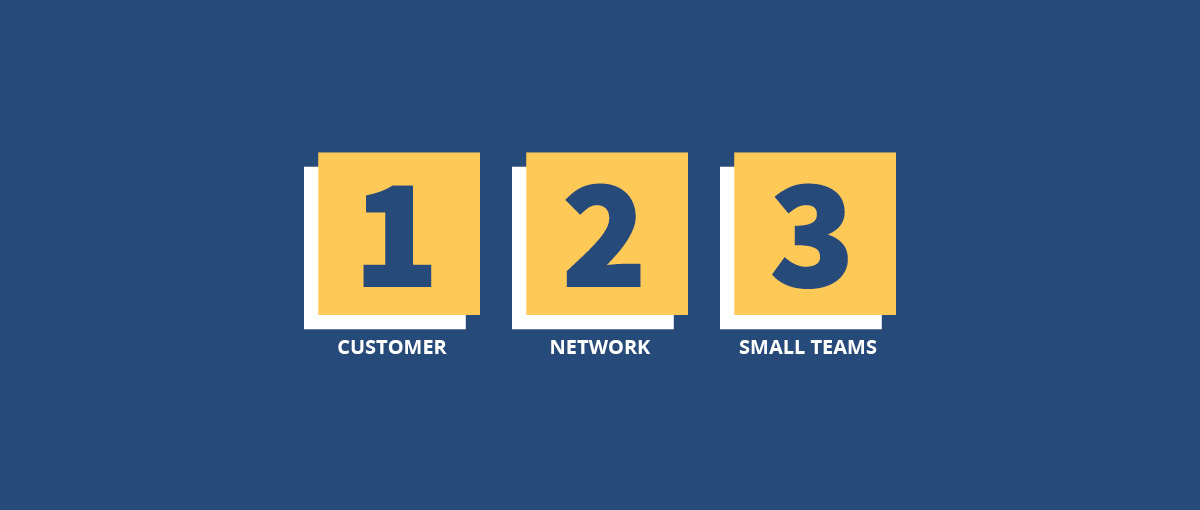213. Sharekh Shaikh On The Digital Revolution In Market Research
Market research is a tool for gathering data about customers and consumers that businesses hope will lead to insights about their behaviors and preferences that can be translated into innovation, better service and better business performance. As with any dynamic system, it has changed over time, and the effects of entropy have begun to show themselves in invalid techniques, invalid data, and invalid conclusions. And as with virtually all business systems, the coming of the digital age provides businesses with the opportunity to review, revise and improve existing practices and existing thinking.
Knowledge Capsule
Traditional models of market research are losing validity.
The Economics For Business approach to market research leans to the qualitative, such as one-on-one conversations with customers and detailed ethnography whereby businesses can observe customer behavior directly. The market research industry grew up favoring quantitative research at scale for its own reasons: that’s where the money is. Sharekh Shaikh points out that a $USD 70 billion industry was built largely on large scale panels — recruited audiences adding up to hundreds or thousands of individuals, to whom the market research industry could launch survey questions (“data gathering instruments”), generating large amounts of response data for quantitative analysis and numerical reporting.
Customers of these research reports use the output for decision support. Consideration of launching, or of purchasing and installing, a software suite or platform costing millions of dollars can be justified with the results of a survey costs tens of thousands of dollars or low six-figures.
One of the planks supporting the value proposition of market research panels is the difficulty of recruiting qualified respondents, such as CIO’s or CTO’s for an enterprise software survey. Panel operators’ revenues reflect their claims to solve this problem, but Sharekh Shaikh tells us that the reliability of their claim has eroded. Panels now may include inaccurately identified respondents (wrong title or role, for example, because the respondent has changed jobs or roles), or even fraud (responses provided by others than the supposed respondent, including bots). The data from the panels is no longer as valid as it once was, and its decision-support quality no longer as high.
This general decline in the quality and reliability of traditional research is taking place in many categories, not just tech — consumer package goods, entertainment, fashion, and any industry that uses these methods.
The digital revolution brings new opportunities for change, including in traditional market research.
It’s unusual to think of digitization as increasing human contact, but in research it’s the case. Sharekh’s research platform, CleverX, has effectively removed the intermediary, the market research panel operator and market research respondent recruitment agency, from the equation, so that the firm requiring research can be connected directly with the respondent with the desired experience and user perspective.
Respondents sign up to a place on the platform by supplying their personal data, career profiles, qualifications, credentials and experience. Their incentives include their desire to participate in and contribute to industry developments, as well as the compensation offered. By learning the questions that are being asked, the professionals who sign up to be respondents can gain insight into the developments that are being pursued in their industry. Being a panel member is career and professional advancement.
The firm seeking to gather data can identify their respondents and assemble their own panel, using their own criteria and specified profiles, and building a direct relationship with their respondents and customers. Moreover, they can use any data collection tool they prefer, whether that is a technical tool such as Survey Monkey, or direct one-one-one conversations on Zoom or Microsoft Teams, digital focus groups, or any other format. By integrating with calendar software, research interviews with CXO’s can be organized and calendarized. These powerful toolsets result in higher quality research being completed up to 10X faster.
Digital technology also facilitates video interviewing, so that researchers can talk directly with respondents, and develop a relationship with them. The video interviewing can be asynchronous: given a query, respondents can video-record their responses whenever convenient, TikTok-style. AI can add enhancements such as sentiment analysis, body language and facial expression interpretation.
The distinction between quantitative and qualitative research disappears and we realize qualitative data at scale.
Market research can become continuous monitoring in the adaptive entrepreneurial system.
The reality of markets today is high-speed continuous change. Market research as a tool has always been at a disadvantage in delivering snapshot that take time to process, by which time the market has moved on. Now, with digital techniques, continuous monitoring is possible. Sharekh mentioned several applications:
- Customer understanding of digital developments: as platforms and systems evolve, customers may not be able to keep up with the technology, or may not be taking advantage of new feature. Digital research techniques can monitor and measure customer understanding dynamically, and point to gaps in their comprehension.
- Dynamic product development: as developers move a product towards market, digital research techniques can expose potential customers to the development path, and help developers to integrate real-time findings.
- Monitoring changing lifestyles and mental models: since digital research technologies can provide a continuing connection with customers, it can measure not only their responses to queries, but also their behaviors, attitudes and thinking in general. It’s possible to develop profiles and personas and segmentations into which innovative ideas can be inserted to simulate reactions and acceptance.
CleverX represents exactly the kind of knowledge recombination that can result in revolutionary change across an entire industry.
A core concept in entrepreneurship is the combining of existing knowledge in new ways for new solutions. Sharekh Shaikh combines his software engineering knowledge with knowledge of the market research space and knowledge of the dissatisfaction of end users with the available research tools. His newly-launched company, CleverX, is a fast-growing new entrant in the research space as a result of providing a totally new service: the facilitation of a direct connection between researcher and respondent with digital intermediation in place of previous-generation tools. The experience for the customer is better data, at faster speeds, gathered more conveniently and faster, and, consequently, of greater use in development and innovation processes.
Additional Resources
Sharekh Shaikh on LinkedIn: Mises.org/E4B_213_LinkedIn





